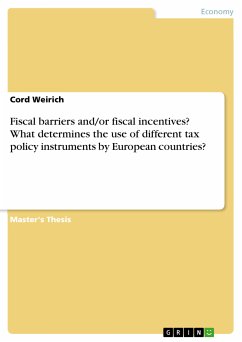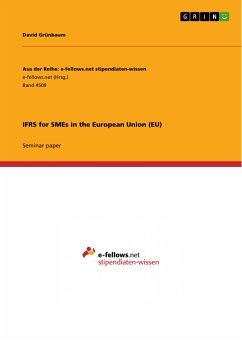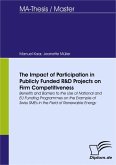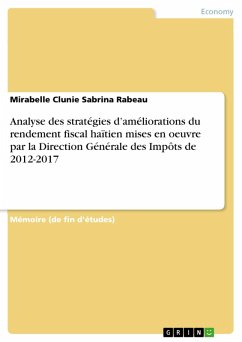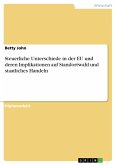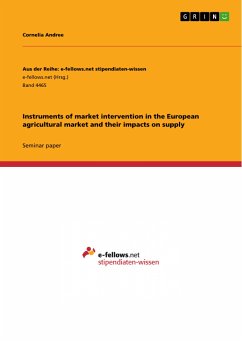Master's Thesis from the year 2016 in the subject Business economics - Accounting and Taxes, grade: 1.7, University of Mannheim, course: International Taxation, language: English, abstract: The thesis analyzes how European countries deploy different fiscal instruments (i.e., fiscal barriers and incentives) in the context of tax competition. The first part of the thesis (International Taxation) gives a brief introduction to the aspects of international taxation which are relevant for the subsequent analysis. The second part (Fiscal instruments in the context of tax competition) provides a detailed overview of the fiscal incentives and fiscal barriers that are used in the context of tax competition. Moreover, through the application of a scoring system, it provides a detailed assessment of each country's positioning (i.e., competitive vs. defensive) with respect to individual instruments as well as on an aggregate basis. Building on these findings, the third part (Quantitative analysis) of the thesis provides a further, quantitative analysis. It analyses the correlation of fiscal instruments with one another as well as with selected attributes of the countries (e.g., the size of the economy). Thirty European countries were analyzed: Austria, Belgium, Bulgaria, Croatia, Cyprus, Czech Republic, Denmark, Estonia, Finland, France, Germany, Greece, Hungary, Ireland, Italy, Latvia, Lithuania, Luxembourg, Malta, the Netherlands, Norway, Poland, Portugal, Romania, Slovakia, Slovenia, Spain, Sweden, Switzerland and the United Kingdom.
Dieser Download kann aus rechtlichen Gründen nur mit Rechnungsadresse in A, B, BG, CY, CZ, D, DK, EW, E, FIN, F, GR, HR, H, IRL, I, LT, L, LR, M, NL, PL, P, R, S, SLO, SK ausgeliefert werden.

